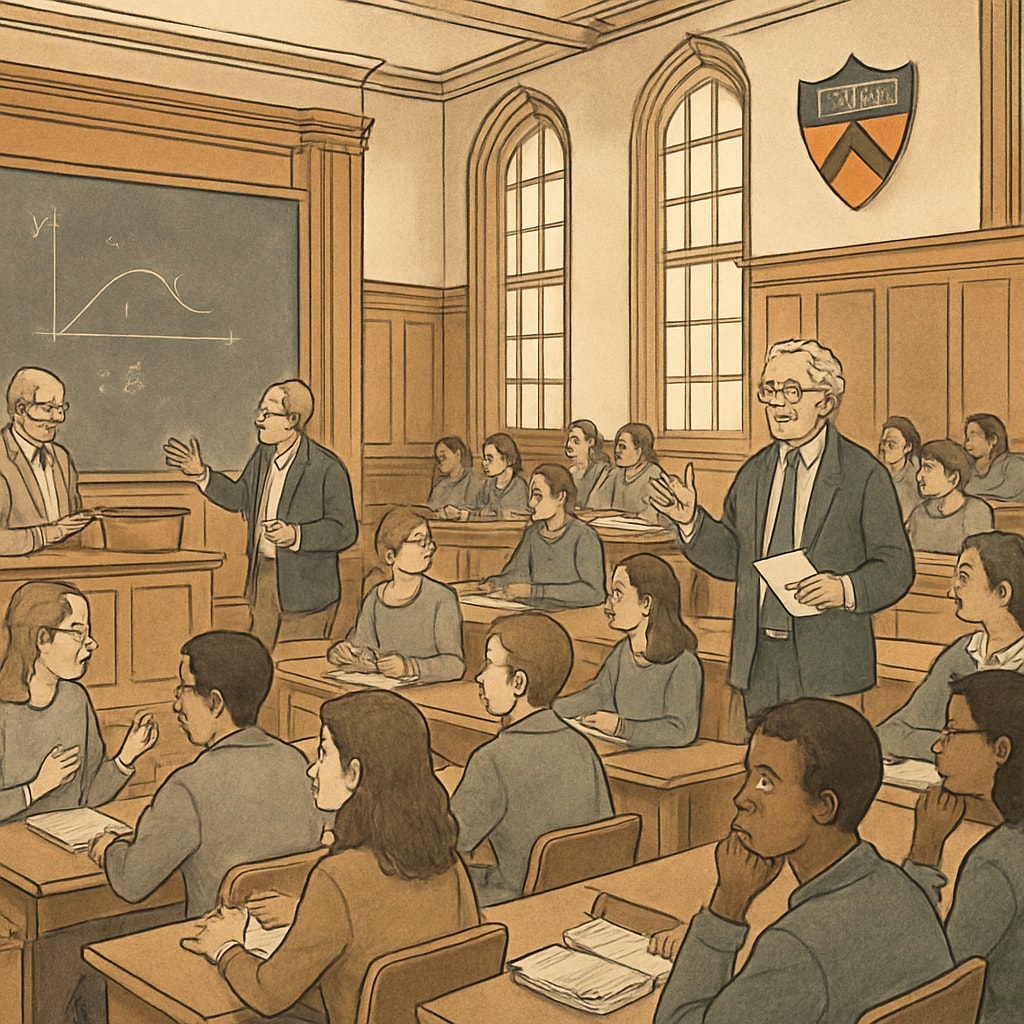Princeton and other Ivy League schools have long been synonymous with academic excellence, prestige, and unparalleled opportunities. However, the narrative surrounding their perceived superiority warrants closer examination. Are we overrating Princeton and other top schools, and is their actual educational value truly as exceptional as their reputation suggests? This article explores these questions by delving into the admissions process, the cost-benefit analysis of attending such institutions, and the broader implications on K-12 education goals.
The Prestige of Ivy League Schools: A Closer Look
The Ivy League, including institutions like Princeton, Harvard, and Yale, has become a global symbol of success. Their admissions process is notoriously competitive, with acceptance rates often dipping below 5%. This exclusivity fosters a perception that these schools guarantee success and financial stability for their graduates. However, studies have shown that the return on investment (ROI) of attending an Ivy League school compared to other reputable universities is not always significantly higher. For example, a Forbes article highlights that graduates from flagship state universities often achieve similar financial outcomes over time.

Costs vs. Benefits: Is the Price Tag Justified?
One of the most controversial aspects of Ivy League schools is their exorbitant tuition fees. At Princeton, the annual cost of attendance, including room and board, can exceed $80,000. While financial aid programs aim to mitigate this burden, the question remains: does the quality of education and networking opportunities justify such a steep price? Many argue that smaller liberal arts colleges and public universities offer comparable academic rigor and personalized attention at a fraction of the cost.
Additionally, the “halo effect” of Ivy League branding often overshadows the actual educational experience. Students attending these schools may feel pressure to conform to societal expectations rather than pursue genuine intellectual curiosity. This raises questions about whether the cost truly aligns with the intrinsic value these institutions provide.

Impact on K-12 Education Goals
The idolization of Ivy League schools has trickled down into the K-12 education system, shaping how students and parents perceive success. Many families invest heavily in extracurricular activities, test preparation, and private tutoring to secure an Ivy League acceptance letter. This hyper-focus on elite admissions can detract from broader educational goals, such as fostering creativity, critical thinking, and emotional intelligence in young learners.
Moreover, the societal emphasis on attending prestigious universities perpetuates inequality. Wealthier families are better positioned to afford the resources needed to compete for Ivy League spots, leaving low-income students at a disadvantage. This cycle reinforces the notion that success is contingent on attending a select group of schools, rather than focusing on a student’s unique strengths and interests.
Rethinking University Evaluation Criteria
It’s time to challenge the traditional metrics of evaluating universities. Instead of prioritizing prestige or rankings, prospective students should consider factors like program quality, faculty expertise, and campus culture. Schools outside the Ivy League, such as top public universities like the University of Michigan and UC Berkeley, offer exceptional education and diverse opportunities.
Additionally, the rise of online education platforms and alternative pathways has democratized access to high-quality learning. Students can now acquire skills and knowledge without the need for a traditional degree from an elite institution. As a result, society must rethink the value we place on Ivy League diplomas and explore more equitable approaches to defining success.
Readability guidance: This article uses short paragraphs and lists to ensure clarity. The content highlights multiple perspectives, supported by external links and balanced arguments, while maintaining a professional tone.


